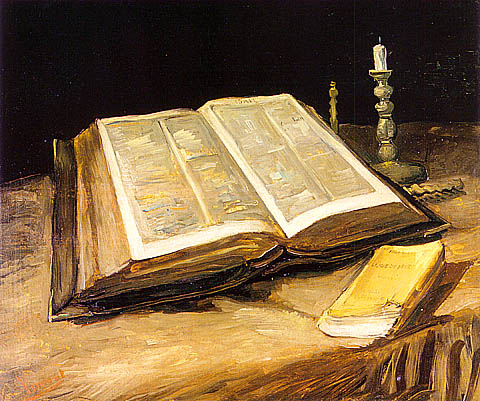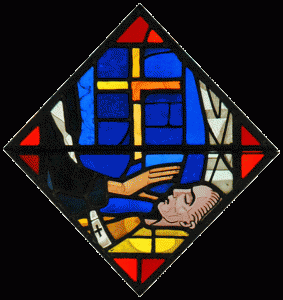
Four weeks ago I was in Ireland, visiting cousins after a blessed Lenten spiritual retreat. Four weeks ago, the United States was, once again, attacked by Muslim terrorists, this time at the finish line of the Boston Marathon, a marathon I have run four times — thrice as an able-bodied runner and once in the wheelchair division. Four weeks ago, my cousins and I watched in horror as a city very dear to my heart reeled from the attack of innocent bystanders, permanently injuring many and killing a few. Four weeks ago, I felt terribly helpless, wanting to be in Boston to offer spiritual support and comfort.

- Psalms 46:1 ~~ God is our refuge and strength, a very present help in trouble.
- Psalms 55:22 ~~ Cast your burden on the Lord, and he will sustain you; he will never permit the righteous to be moved.
- Psalms 25:1 ~~ In You, Lord my God, I put my trust.
And, so, we came . . . . After a middle-of-the-night visit from their priest and through the remarkable generosity of a small Irish parish, funds were gathered and an airline ticket was purchased for my cousin, Meghan. I had an open-ended return ticket to the USA that I had not intended to use until summer, but God was calling me to be in Boston. Meghan is a retired nurse who worked in the trauma unit of a hospital for many years; my brother, Patrick, is a retired orthopedic surgeon, my sister, Colleen, is a retired pediatrician, and my niece, Michelle, is a nurse; my nephew, John, and I are priests. With ties to this great city, we descended upon Boston to help where we could.
- Psalms 147:3 ~~ He heals the brokenhearted, and binds up their wounds.
- Jeremiah 17:14 ~~ Heal me, O Lord, and I shall be healed; save me, and I shall be saved; for you are my praise.
- Mark 5:34 ~~ He said to her, “Daughter, your faith has made you well; go in peace, and be healed of your disease.”
- James 5:14 ~~ Are any among you sick? They should call for the elders of the church and have them pray over them, anointing them with oil in the name of the Lord.
- Luke 4:18 ~~ The Spirit of the Lord is upon me, because he has anointed me to bring good news to the poor.

John was ordained just a year ago and continues to live in Boston, teaching at one of the many colleges that line the historic streets. Through the gracious hospitality of people he knows, we all had lodging arranged for us. Each of us has felt extremely blessed to meet the victims of the bombings and their families. Americans are resilient, Bostonians are resilient, and the spiritual strength of those we met never ceased to amaze me.
- Proverbs 3:5 ~~ Trust in the Lord with all your heart, and do not rely on your own insight.
- John 14:1 ~~ “Do not let your hearts be troubled. Believe in God, believe also in me.”
The medical O’Malleys and Donahues remained in Boston for two weeks, volunteering their services where needed. I remained in Boston for another week where Fr. John and I ministered to the spiritual needs of the injured and their families. We prayed, we celebrated Mass, we offered the Eucharist and, while blessing those who were in crisis, we felt blessed to be a part of their healing. Strong. Boston Strong.

In a city that is predominately Roman Catholic, at a time when people from all walks of life ran towards the bombing victims, priests who were within reach of the wounded and dying were prohibited from approaching them. Anointing of the Sick is one of seven sacraments in the Catholic church. It is sacred to us. For priests to be within reach of those needing and wanting to receive this sacrament, and to be denied the opportunity, is maddening. For the police — many of whom are Irish Catholic — to barricade priests against entering the crime scene to minister to the dying and injured is unconscionable. At this writing, the police have not responded to calls from the media as to their reasoning. Anointing of the Sick at the Boston Marathon
Emotions continue to run high in Boston, mine included. And, so, while on an airplane, flying home to the West, I nearly lost my priestly pacifism when my seat mate referred to me as an apostate priest who was leading my fellow Catholics down an evil path. This is not the first time I have been called an apostate priest; most recently, it was a fellow blogger who has nothing kind to say about the Roman Catholic Church or its followers. However, being confronted in person, on an enclosed airplane, was a first. While trying to ignore his diatribe, I continued to read my Bible, most specifically the Book of Wisdom which is considered apocryphal by Protestants and is not included in the Protestant Bible.

And, so, I tried to be wise. I tried to heed the spirit of the Book of Wisdom. I tried to keep my impish Irish temper in check. After explaining to my fellow passenger that an already long flight would be made only longer if he continued to criticize my church and me, I asked him to allow me to continue reading the Bible in peace.
- The Wisdom of Solomon 1:11 ~~ Beware then of useless grumbling, and keep your tongue from slander; because no secret word is without result, and a lying mouth destroys the soul.
After a couple of hours of peaceful silence, I opened a discussion with him about the Book of Wisdom. I explained that, although considered apocryphal by Protestants, it contains much of what is found in the Protestant canon. It contrasts the lives of the just and the wicked, dramatizing the eschatological destinies of the two groups. It celebrates the figure of the divine Sophia, or Wisdom. It uses historical comparison based principally on Exodus 7-14, providing Biblical examples of the righteous and the unrighteous, and demonstrates how the power of the divine wisdom operates in human history. Knowing that this person believes the Bible to be the inerrant, factually historical, Word of God, not the inerrant, inspired, Word of God, I needed to compare and contrast very carefully.
We discussed the Bible and our interpretations of certain scriptures. Then, I asked him if he would explain to me why, without knowing me as a person, he thinks of me as an apostate, why he believes the Catholic church is evil in its teachings, and why he thinks it wrong of me to minister to those in Boston who were injured. I will not relive our conversation here but, suffice it to say, I got an earful.
When he was finished with his diatribe, I explained to him what I had witnessed in Boston — families of those who were murdered, the injured and their families, and witnesses who will forever be affected by the war scene. I met people from all walks of faith — Catholic, Protestant, Jewish, Muslim, and some who claimed no particular faith but who still believed in a powerful God. What I learned from these people is that in the big scheme of the universe, it does not matter to God which faith community we belong, but that we believe in Him and His healing power.
I witnessed people from different faith backgrounds coming together to pray, to offer support, to cry. I witnessed people from different faith backgrounds giving blood for the victims. I witnessed people from different faith backgrounds working side-by-side in hospitals to heal the injured. Not one person gave thought to which denomination another might belong. During this time of crisis, it did not matter. I prayed with, not only Catholics, but with Protestants from many different denominations, and Jews. What mattered to the injured, their families, and the city of Boston, was the benevolent humanity from all walks of faith.
I explained my observations to my seat mate and, yet, it fell on deaf ears. Rather than praying intercessory prayers, asking God to comfort those who had lost loved ones or asking God to heal those who had been injured, he believed the only prayers he should offer were for their salvation. Intercessory prayer is simply prayer for other people and, in a sense, everyone is called to be an intercessor as we pray for one another.
- James 5:16 ~~ Therefore confess your sins to each other and pray for each other so that you may be healed. The prayer of a righteous person is powerful and effective.
- 1 Timothy 2:1 ~~ First of all, then, I urge that supplications, prayers, intercessions, and thanksgivings be made for all people.
- Ephesians 6:18 ~~ Praying at all times in the Spirit, with all prayer and supplication. To that end keep alert with all perseverance, making supplication for all the saints.
After a long flight made only longer by our discussion, I knew my seat mate and I would never agree. I have very close friends who are not of my faith. We do not always agree, but we respect each other’s beliefs and we try to learn from each other. I am saddened that this man could not open his heart to loving others as they are, no matter their faith backgrounds. If we are to ever experience world peace, it will be because we take to heart . . .
- Mark 12: 30-31 ~~ Love the Lord your God with all your heart and with all your soul and with all your mind and with all your strength. The second is this: ‘Love your neighbor as yourself. There is no commandment greater than these.




























